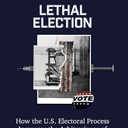
A recent Philadelphia Inquirer study revealed that the death penalty is almost never handed down for homicides in Pennsylvania, and that executions are even more unlikely. From a compilation of 1,975 homicide cases dating from 2007 to Feb. 3, 2011 provided by the Administrative Office of Pennsylvania Courts, only 8 resulted in a death sentence. Almost all cases ended with a sentence of life without parole, with guilty pleas, acquittals or dismissal of charges. Of the almost 2,000 cases from 56 counties, 639 were judged to be 1st degree murders, eligible for the death penalty; 231 of those ended with life sentences. Pennsylvania has not carried out an execution since 1999, and has executed 3 people since the death penalty was reinstated in 1978. All three waived their appeals. Those on death row spend 23 hours a day in solitary confinement in special units at 4 state prisons, some for as long as 27 years. Over half of the 222 cases in which the death sentence was overturned were found to have ineffective representation.
Those who did receive the death penalty were not necessarily the worst cases; among those who did not receive the death penalty were one man who killed two security guards, and three ment who killed police officers.
(J. Slobodzian, “Rarely used, Pennsylvania’s death penalty remains a headache on both sides of the debate,” Philadelphia Inquirer, May 15, 2011). See Arbitrariness and Sentencing.



